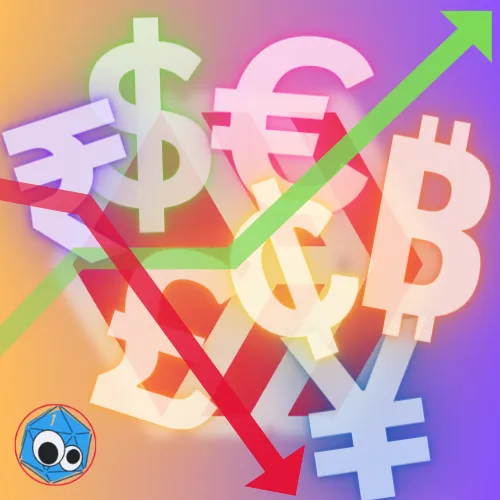
This post is not really investment advice in the traditional sense. I'm not here to argue whether you should buy stocks, bonds, gold, real estate, cryptocurrencies, or anything else. Instead, I want to encourage you to consider your day-to-day purchases from the perspective of investment. I'm talking about buying with purpose: stocking up on supplies, buying for durability/repairability, and owning instead of licensing in our age of software surveillance.
Some items are consumable, disposable, or otherwise outside the scope of this post, and I'm not trying to guilt-trip anyone. That said, anything intended for long-term use or storage should be considered as an investment and weighed against your present budget, future needs, and alternative spending opportunities. We need to be conscious about our consumption, and I use the collective pronoun "we" because this is a reminder to myself as I strive to be better, too.
Example 1: fast fashion versus timeless quality.
Spend on quality, especially when something needs to last for years. I buy cheap, but durable, blue jeans because they are still effectively a consumable. I wear them until they are worn out. I'll burn through the knees on $100 jeans about as fast as a $20 pair. On the other hand, I recently bought some expensive footwear because they were comfortable, well-built, and will be easy to re-sole them should they wear out. A review will be forthcoming eventually, but I am already pretty confident I made the right choice.
I suggest worrying more about the materials themselves than the country of origin. Cheap clothing is often made with synthetic fibers which shed microplastics, degrade under UV light, melt into skin-scalding goo if exposed to flame, and wear out faster than natural materials like wool or leather. Economic nationalism often goes overboard, too. Good materials from a foreign country are still good materials. Skilled craftsmanship from another continent is still skilled craftsmanship.
Example 2: buy once, cry once
I have bought the budget alternatives to high-dollar items enough to know how often that turns out to be the expensive path in the long run, especially with tools. It is often worth pinching pennies and saving up for the proper tool instead of grabbing the cheap knockoff. Not always, though. Spending more is not always spending better. Do some research, read reviews, and stretch your dollars/pounds/euros/pesos/yen/yuan where you can. Just don't cheap out when quality matters.
Example 3: own, don't borrow or license.
I advise against debt as a general rule. Be wary of borrowing. Payment plans trap you into an obligation, and may prevent you from having freedom to pursue many other opportunities. Many people feel locked into miserable jobs because of looming payments. Seriously, listen to Dave Ramsey and get out of debt.
I also detest the world of software licenses permeating ever more as embedded electronics are added to everytbing. Avoid "smart" products that don't need to be. Use open-source software as much as possible within the limits of your technological ability. An end user license agreement to use something you paid for is a red flag. Free and open-source software is usually free (as in price) to acquire, and always free (as in free speech) to use and modify. Own your technology instead of borrowing its use from some corporate overlord.

You don't need to buy new to buy quality. Thrift stores (charity shops), garage sales, estate sales, and other second-hand opportunities can get you an absolute bargain in exchange for patience and effort. Craigslist or eBay can still be useful, too, but caveat emptor. You can build a quality wardrobe, nice furnishings, and a well-stocked toolbox over time. This will pay its own kind of dividends in the long run.
Perishables are harder to stockpile on a budget, but anyone who remembers the shortages and lockdowns from COVID should know now how important it is to have a reserve on hand. Sell-by dates on canned goods are often very pessimistic about the actual shelf life of the contents. Bulk ingredients like rice, beans, flour, and sugar are relatively cheap if you're willing to cook from scratch. And maybe have some extra toilet paper squirreled away, just in case?
Be prepared, because next time things go bad, whether due to a short storm causing local chaos or a national/global disaster, these small expenditures will look like a bargain. Being free from debt obligations also means you have leeway if money is tight, a job is lost, or a personal emergency strikes. Money well-spent is an investment that can't really be calculated on a spreadsheet.
Shifting to open-source software and avoiding too many embedded systems means you can use your computers, appliances, and more for longer and with greater personal control. Google, Apple, Microsoft, etc. can't yank the rug out from under you by ending support, and your data will be far less vulnerable with just a few precautions. It just takes an investment of time.
Hopefully some of that made sense. Comment below if you disagree, have something to add, or can share relevant personal experiences.
